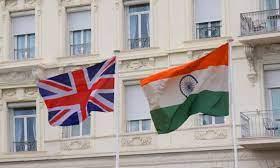
India-UK free trade agreement faces hurdle over medical devices
text_fieldsLondon: Negotiations on the proposed free-trade agreement (FTA) between India and the UK have encountered a stumbling block concerning the establishment of rules of origin for the medical devices sector.
An official disclosed ongoing discussions aimed at resolving disparities in both goods and services sectors between the two nations.
India, which imports roughly 80% of its medical device requirements, holds substantial potential in this sector. Key exporting nations to India for medical devices include the US, Germany, China, Singapore, and the Netherlands.
Significant issues persist in the medical devices sector, primarily concerning rules of origin and customs duty concessions. The ongoing negotiations aim to address these challenges as both countries seek consensus.
India has taken proactive steps to boost domestic manufacturing of medical devices and attract substantial investments in the sector. Initiatives such as the Promotion of Medical Device Parks, the National Biopharma Mission, and a production-linked Incentive scheme have been introduced to foster growth.
The prevalent categories of medical devices predominantly imported by India encompass consumables, disposables, electronics and equipment, implants, IVD reagents, and surgical instruments.
The 'rules of origin' provision within an FTA necessitates a stipulated level of processing within the FTA country to categorise the final manufactured product as originating goods in that country. This provision acts as a safeguard against the dumping of goods, requiring a prescribed value addition in the product to be exported.
Experts suggest that India should consider refraining from offering duty concessions, particularly as the country promotes domestic manufacturing in this sector. However, relaxations could be considered for equipment not manufactured within India, according to Rajinder Singh Kanwar from the Export Promotion Council For Medical Devices.
Negotiations for the agreement span 26 policy areas or chapters, with investment being deliberated separately through a bilateral investment treaty. Simultaneously, India aims for expanded market access for its pharmaceutical products in the UK as part of the agreement.
The bilateral trade between India and the UK surged to USD 20.36 billion in 2022-23 from USD 17.5 billion in the preceding year. The UK, a significant investor in India, engages in trade predominantly involving various sectors, including textiles, engineering goods, pharma, and machinery.























